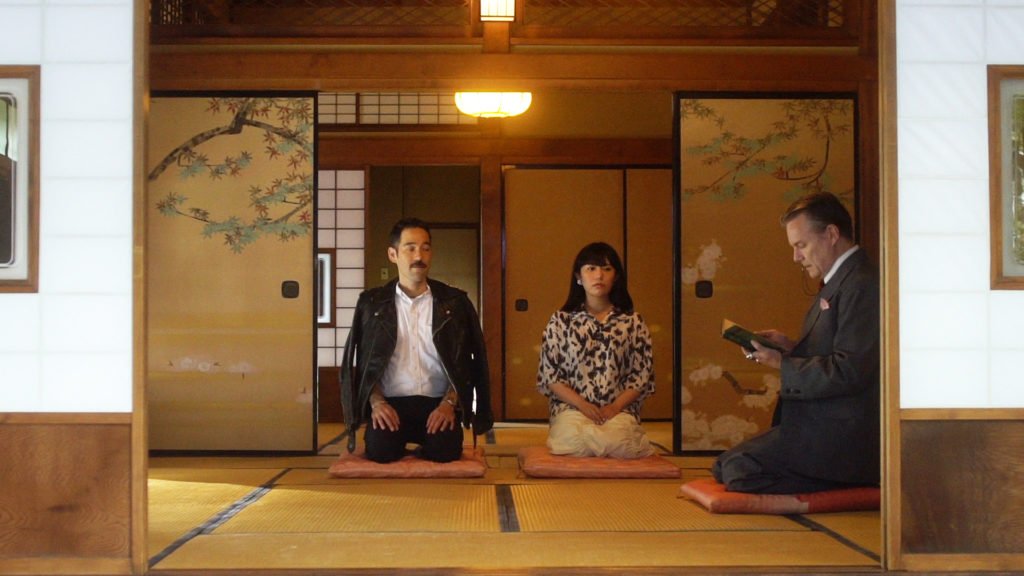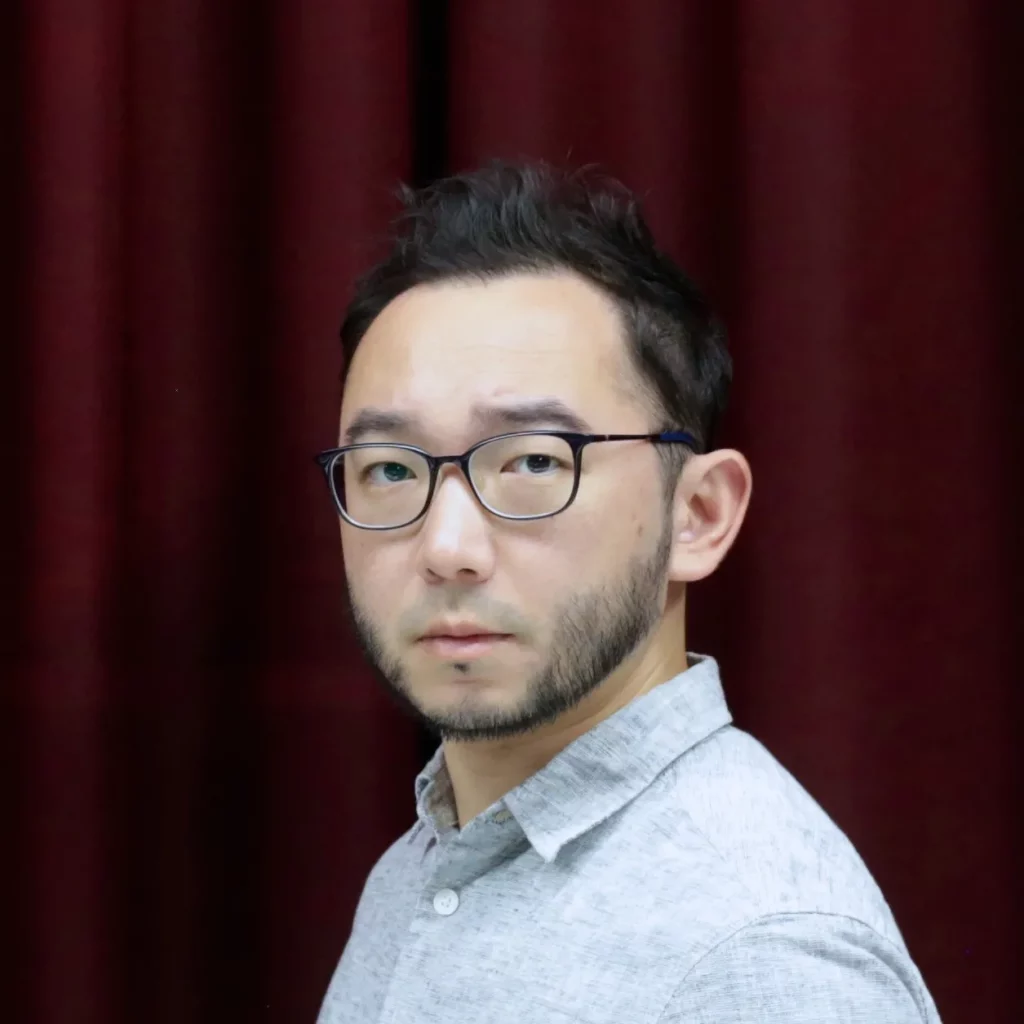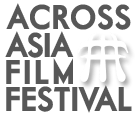
Giappone, 2021, 29′
Yu Araki
Taro Nettleton, Qinhua Yang, Jack McLean
A traditional Japanese home, filmed in frontal frames, in the style of Ozu. As a soundtrack, the Apollo 11 moon landing archives. A Japanese commentator takes over and announces the forthcoming programme: the real-time two-person commentary of a wedding ceremony on the Nagasaki moon base. Why Nagasaki? Because Puccini set the wedding of American officer Pinkerton and geisha Cio-Cio there in the first act of Madama Butterfly, and because HONEYMOON is an exuberant and explosive variation on this opera. Why the moon? Because this filmic bomb is literally science-fiction, and because space-time distance sharpens the eye for the experience to come. Via an analysis of the ceremony as a tableau vivant, the experience consists in a both highbrow and crazy deconstruction of “Japanism”, namely the fascination of 19th to early 20th-century Europe with Japan. Yu Araki replaces Puccini’s original husband and marriage officiant with two Japanophile historical figures: eccentric photographer Adolf de Meyer and American anthropologist Frederick Starr. Ethnology, etymology, history, onomastics: as the people in the tv control room explain the tableau vivant in details, the dialogued commentary turns into encyclopaedic frenzy, exegetical wirework. The core of this deconstructivist experience is the seiza, that is to say the formal way of kneeling on the floor, a mandatory if slightly uncomfortable position in ceremonies. When the characters finally stand up, their stiffened walk reminds us of that of Apollo 11 explorer astronauts. The film ends with this brilliant idea, this zero-gravity ending to a film which combines the invention of minimalist burlesque with the most generous sharing of intelligence and knowledge. (Cyril Neyrat)

Yu ARAKI (1985, Japan) received his Bachelor of Fine Arts in Sculpture from Washington University in St. Louis and completed his Master of Film and New Media Studies at Tokyo University of the Arts in 2007. He met Daniel Jacoby in 2010 during a residency at Tokyo Wonder Site. Both their works have been highly influenced by their travels. Fiction is often used by them as a tool to comprehend the puzzling cultural and socio-political differences between destinations. Their first film made as a duo was Mountain Plain Mountain (2018). The film won the Ammodo Tiger Short Film Award. In 2019 he was shortlisted for the Future Generation Art Prize.

